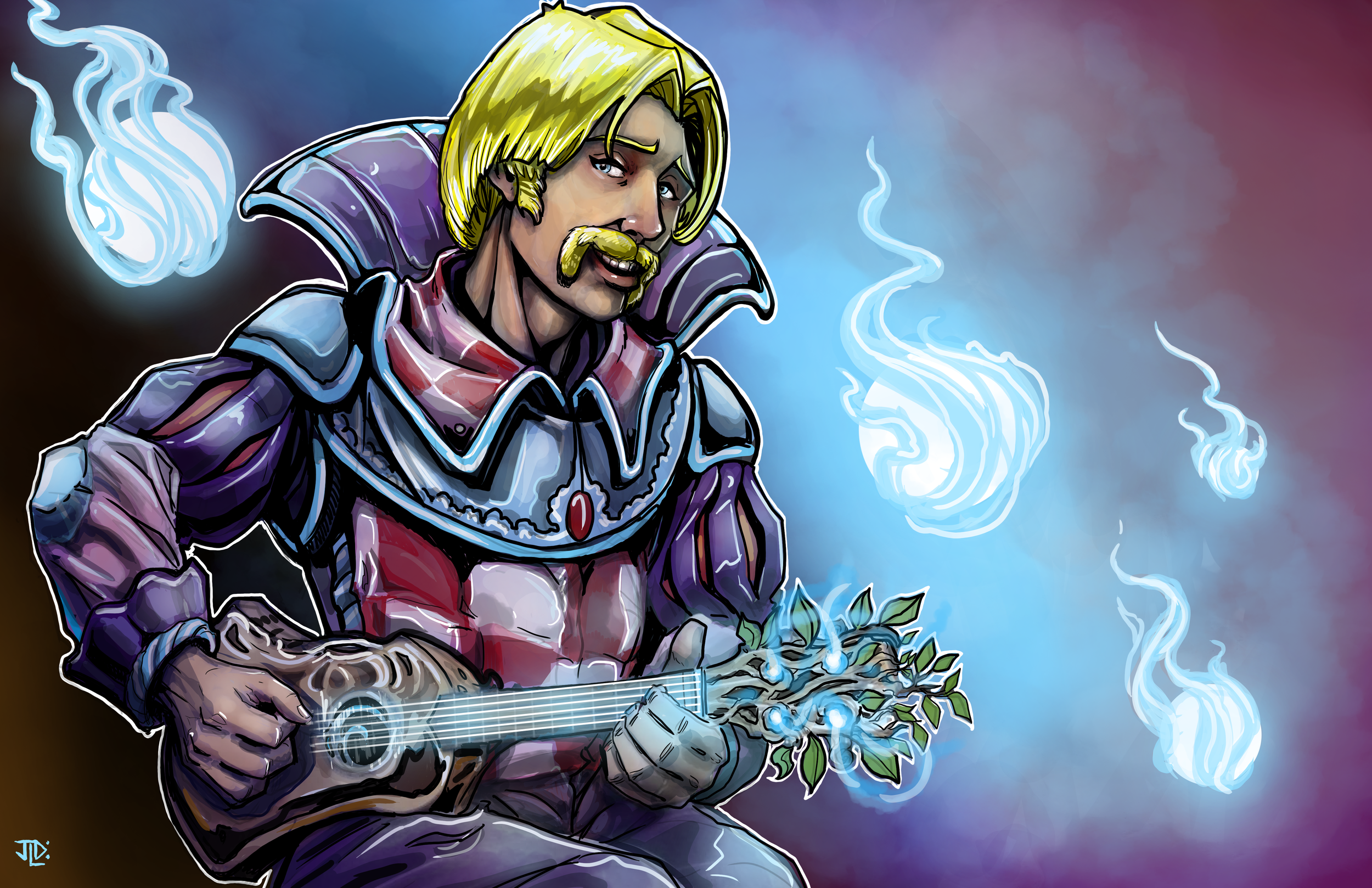Bard College of Lore 5e
Review by Sam West, Twitter: @CrierKobold
College of Lore is for characters who see the utterly busted concept of Magical Secrets and just want more of it. That’s the main reason to consider the subclass; the rest of the subclass is mainly gravy or skill overkill.
I personally am not a fan of this option for that reason. There is a critical mass of skills any specific character will need. Bards come with Jack of all Trades and Expertise already with an extra skill over most of the other classes, making a lot of these features unimpressive, forcing the bulk of the weight to get placed on expanded spell options, which just isn’t that exciting to me.
See Also: Best Feats for Lore Bard
3rd Level: Bonus Proficiencies and Cutting Words
Lore bards get three bonus skill proficiencies. Three is so many. You already have at this point proficiency in at least five skills (three class, two background), Jack of All Trades (giving you half proficiency in every skill you’re not proficient with), AND Expertise. On top of all these skill features, you’re playing with a party with other people who have at least four skills each. There are only eighteen skills in the game; In a four-person party, you’re already capable of covering 17 out of the 18 possible skills with a bard and any other three classes. All these skill proficiencies offer the party will be redundancy, or you an opportunity to usurp another player who wanted a skill to be something their character excelled.
Cutting Words does offer an excellent defensive tool for the class, though. Reactions are hard to come by; getting a way to use yours can be great, especially if you intend to grab bonus action-based spells like Spiritual Weapon or summon effects that are commanded as a bonus action. This opens up your Bardic Inspiration to work with your reaction instead of needing to juggle your bonus actions around inspiring other allies.
The redundancy isn’t great if that isn’t the case, though. If you’re already giving out Inspiration as your primary bonus action, the pool now being shared with Cutting Words can leave both features feeling like they quickly run out of juice up until you start getting your inspiration dice back on short rest.
6th Level: Additional Magical Secrets
Additional Magical Secrets takes Bard’s most abusable feature and gives it to you four levels early with two bonus spells. Two spells from any spell list have the potential to shatter how your DM was balancing things. Fireball is iconically busted; now, you’ve got it if you want it. Revivify fundamentally changes how death can occur in the group. If you want that at your table, you can get it with Additional Magical Secrets.
If you have a specific suite of spells in mind to set up a particular fantasy or build, Lore’s bonus Magical Secrets is an easy way to ensure you’re getting all those spells in the lower-mid tier and beyond.
14th Level: Peerless Skill
Peerless Skill is about as underwhelming a feature as you could ask for. Mechanically, you now have a way to bolster crucial skill checks when you know you need to. That just isn’t exciting for your entire 14th-level feature, especially when you realize your Inspiration dice pool is competing for three different abilities now. Every one of your Bardic Inspiration Dice now can do three different things that all compete with each other, and Peerless skill isn’t so much better than the others you’re going to readily use it in place of them. This isn’t really an upgrade to these lower-level features, more of a sidegrade for different situations.
All Together
College of Lore is kind of the default bard subclass just because it is printed in the Player’s Handbook and gets two good third-level spells of their choice. Cutting Words is a solid new option to have, but doesn’t really define the sub-class in any meaningful ways. The bonuses to skills in bonus proficiencies and Peerless Skill aren’t all that exciting either, especially when compared to options like College of Eloquence. Unless you’re building your character around two specific 3rd level slots, I’d recommend almost any other bard college over lore simply for unique and interesting abilities. If you want a simple, easy-to-digest, and powerful bard college, Magical Secrets and Cutting Words are enough to justify taking this.
Thank you for visiting!
If you’d like to support this ongoing project, you can do so by buying my books, getting some sweet C&C merch, or joining my Patreon.
The text on this page is Open Game Content, and is licensed for public use under the terms of the Open Game License v1.0a.
‘d20 System’ and the ‘d20 System’ logo are trademarks of Wizards of the Coast, Inc.
and are used according to the terms of the d20 System License version 6.0.
A copy of this License can be found at www.wizards.com/d20.



